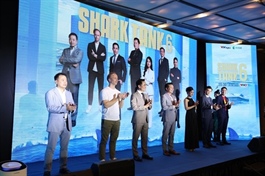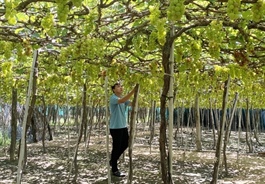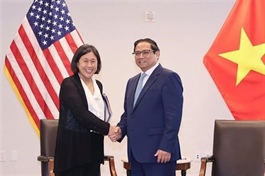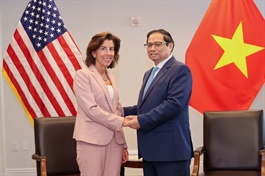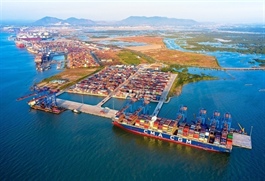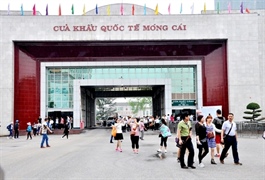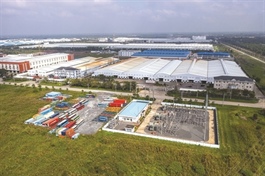Vietnam’s Hai Phong City attracts extra $1.4 billion in foreign investment
Vietnam’s Hai Phong City attracts extra $1.4 billion in foreign investment
Several enterprises from South Korea and Japan were granted investment certificates on Friday to develop FDI projects at industrial parks in the northern port city of Hai Phong, with a total pledged capital reaching nearly US$1.4 billion.

The investment certificate handover ceremony was attended by Le Tien Chau, secretary of the municipal Party Committee.
The Hai Phong Economic Zone Management Board presented an investment certificate to Ecovane, a subsidiary of the South Korean chemicals maker SKC, to develop a hi-tech biodegradable material factory project worth $500 million.
Other key projects receiving the certificates at the event included a BW ready-built factory worth $60 million and a $40-million auto parts manufacturing plant by China’s CCTY Bearing Company.
Besides, Japan's Kyocera Document Solutions Inc was approved to pour an additional $237.5 million into its machine and equipment manufacturing plant project, raising the project’s total investment to $425 million.
The municipal Economic Zone Management Board also finished the selection of investors for two social housing projects worth a combined $400 million, whose work is expected to begin this year.
Once completed, the social housing projects will offer more than 8,000 apartments to around 22,000 people, contributing to the city’s efforts to ensure social security and stable accommodations for low-income employees.
In the year to September 20, industrial parks and economic zones in Hai Phong had attracted roughly $3.1 billion of investment, reaching 120 percent of its 2023 target, said Le Trung Kien, head of the city’s Economic Zone Management Board.
Up to now, over 1,000 FDI projects worth a combined $28 billion have been developed in this northern port city, which granted investment certificates to 45 FDI projects with a total pledged capital of nearly $2.1 billion and 11 DDI (domestic direct investment) projects with a total cost of some $600 million last month.
The city’s Economic Zone Management Board previously had a working session with South Korea’s Chungbuk Free Economic Zone, which sought to cooperate with businesses active in Hai Phong as well as support them in technology transfers and human resources training.
The investment in semiconductor technology in Hai Phong is expected to advance further as SKC, the chemical unit of South Korea’s SK Group, inked a memorandum of understanding with Hai Phong to study the investment environment for advanced semiconductor materials, secondary batteries, and some other eco-friendly materials.
SK Group is the second-largest conglomerate in South Korea, just after Samsung, focusing on four main areas including energy and chemicals; telecommunications; semiconductors and other advanced materials; pharmaceuticals and logistics services, according to the Hai Phong Economic Zone Management Board.







